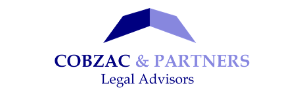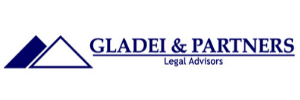The scope of this article is to concisely provide a general outlook and stress major underpinnings incumbent for observance by the audit entities operating under the Republic of Moldova jurisdiction based on the in-force legislation as of the date of its publication.
- Separation of the Non-Audit Services
By this restriction the legislator invariably aims at preserving and strengthening auditors’ independence. Thus, this provision was intended to mitigate bias in the audit reports, by expressly prohibiting an audit company to provide non-audit services simultaneously with a statutory audit, to the audited entity, during the same reporting period. Nonetheless, even though the client base may be affected, the audit entities may preserve it and continue rendering the same array of services, as long as adjustments are operated in terms of a slight corporate shift and is implemented a safeguards system.
- Internal policies and regulations
The audit company shall ensure drafting policies and procedures which provide that the shareholders as well as members of the Council, of the Executive Body, do not influence the performance and the integrity of the audit activity. The law requires the audit entity to assess annually the effectiveness of audit quality policies and of the procedures and to keep track of the assessments and measures proposed to improve the internal audit quality control. The audit company is to apply: secure administrative and accounting procedures, efficient procedures of risk evaluation; measures of protection and control of the information processing system; other procedures of organizing the activity, provided by the audit and quality control standards.
- Improving the evidence record and transparency measures
The audit entity shall ensure organizing the evidence of the audited entities by creating a case file for the auditory mission, which contains different pertinent documents, including verified information on whether there are threats to the independence and if the protective measures applied to eliminate or reduce such threats are jeopardized. As to the auditing companies performing the audit of public interest entities shall submit to the Council for Public Supervision of the Audit and publish on their official web pages, within 4 months as of the end of each reporting period, the transparency report, which shall remain available for a minimum of 5 years from the date of publication. Suspect transactions are to be reported.
- Insured risks and liability aspects
The audit entity is required to insure audit risk for the loss caused to the audited entity to the auditor as a result of stating an inappropriate audit opinion, if the financial statements contain significant misstatements. To ensure the audit risk, the audit entity shall, as appropriate, undertake the following measures: a) concludes with the insurer a civil liability insurance contract for the possible risks of professional activity; b) constitutes provisions of a minimum of 15% of the sales revenue during the audit reporting period. Liability is carried by the management of the audit entity. Also, each audit company is to be subject to an external quality control at least once in every 6 years, and for the audit entities performing the audit to PIEs at least once in every 3 years.
- Miscellaneous
Audit activity is no longer subject to licensing, while for incorporation a second-tier registration procedure is to be performed before the Council for the Public Supervision of the Audit.
As to the internal quality control, the audit entity shall draw up and report to the Council, within 4 months as of the end of each reporting period, on the compliance with the audit quality control procedures. The audit fees shall be independent from events based on contingencies or unforeseen events, or based on the fact that the audit entity provides other services to the audited entity. Also, there is no time limit for suspension of the audit activity.
Author: Marina Zarija, Junior Associate ACI Partners
Aflaţi mai mult despre Audit, Big Four, Marina ZARIJA












